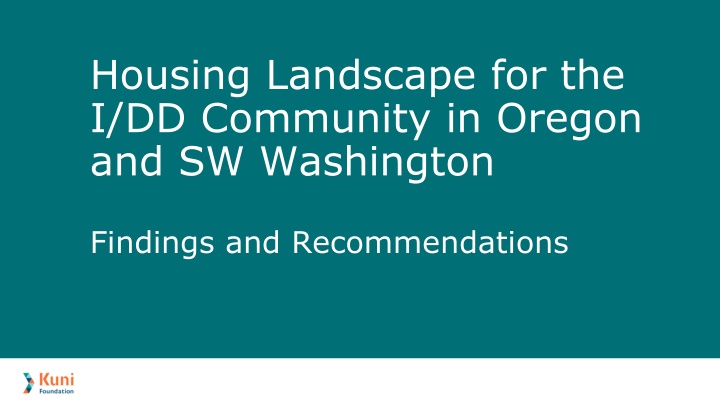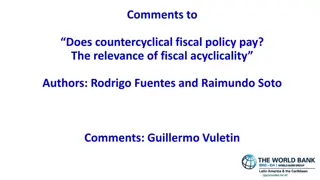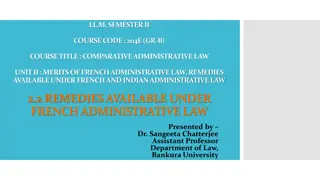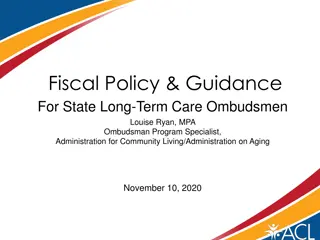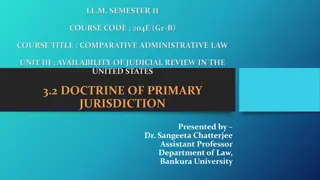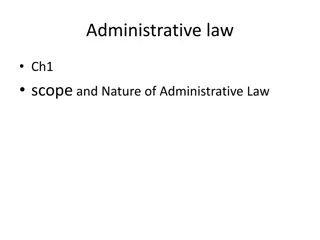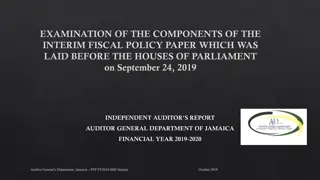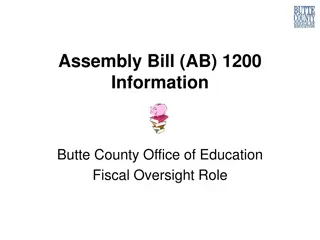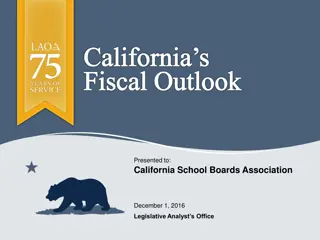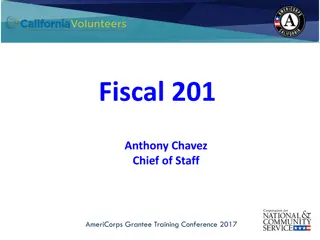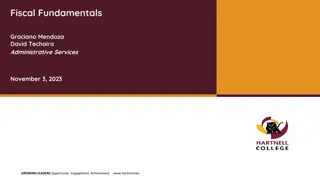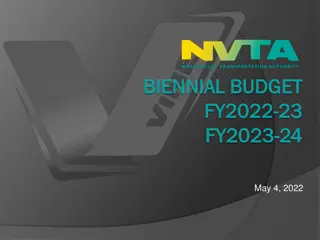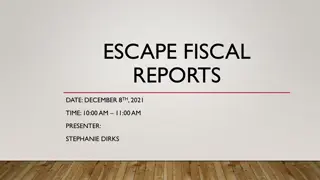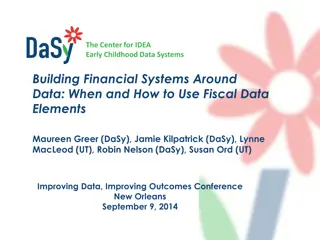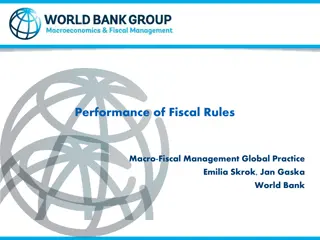Fiscal Administrative Processes Overview
Providing a high-level overview on grant management, financial compliance processes, budget guidelines, and more for CDVSA subgrantees. Details on budget overview, grant budget, indirect costs, and De Minimis rule are covered.
Uploaded on Mar 16, 2025 | 1 Views
Download Presentation

Please find below an Image/Link to download the presentation.
The content on the website is provided AS IS for your information and personal use only. It may not be sold, licensed, or shared on other websites without obtaining consent from the author.If you encounter any issues during the download, it is possible that the publisher has removed the file from their server.
You are allowed to download the files provided on this website for personal or commercial use, subject to the condition that they are used lawfully. All files are the property of their respective owners.
The content on the website is provided AS IS for your information and personal use only. It may not be sold, licensed, or shared on other websites without obtaining consent from the author.
E N D
Presentation Transcript
Housing Landscape for the I/DD Community in Oregon and SW Washington Findings and Recommendations
Outdated Data National data currently used to quantify the number of individuals experiencing I/DD is more than 25 years old. The number of people experiencing I/DD could be many times higher than the currently used rate. 2
Lack of Available, Affordable Options Housing costs skyrocketing in PNW. Affordable housing options are in short supply. Region s housing crisis increasingly challenging for adults with I/DD: An estimated 24,000 adults with I/DD in the region face housing insecurity. SSI income doesn t come close to covering the cost of most housing options.
Where People Experiencing I/DD Currently Call Home
Aging Caregiver Population Approximately 39.8 million caregivers provide care to adults 18+ with a disability or illness. of individuals experiencing a disability in Oregon live at home. 60% of individuals experiencing a disability in Washington live at home. 70% Of those caregivers, 34% are 65 years of age or older. live with a caregiver older than 60. 25%
Resources Going Unused Better collaboration offers immediate opportunity, as many available funding streams and incentives go untapped due to lack of awareness. Oregon Housing and Community Services received $2.3 million in rental assistance from the Federal Department of Housing and Urban Development in 2015 to support the integration of 75 affordable housing units for individuals experiencing I/DD in community based rental properties. As of 2020 only one third of these rental assistance vouchers had been used.
ECONorthwest Recommendations: A Snapshot Align with national efforts to improve data collection and enhance state-level data collection and capacity to link and analyze data across agencies. Conduct additional outreach to find and serve individuals unknown to state agencies. Elevate the needs of adults experiencing I/DD when allocating scarce housing resources. Use the newly Metro-approved resources to end homelessness for adults with I/DD in tri- county Portland. Bridge the gap and improve coordination between housing and support services to connect rent subsidies and wraparound support so that more people who desire to live independently are able to. Help developers understand the in-home support funding for individuals with I/DD to incentivize more housing units affordable at 0-30 percent of area median income.
Increasing Visibility and Housing Options Use the toolkit on the Kuni Foundation website to share the findings of this study. Stay connected and sign-up for upcoming advocacy opportunities. Share your ideas and insights related to solutions. THANK YOU!
